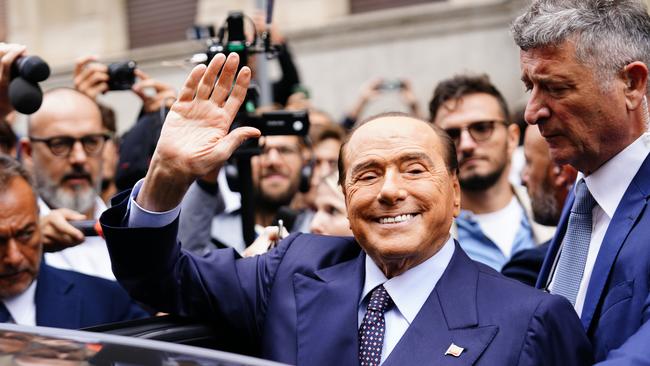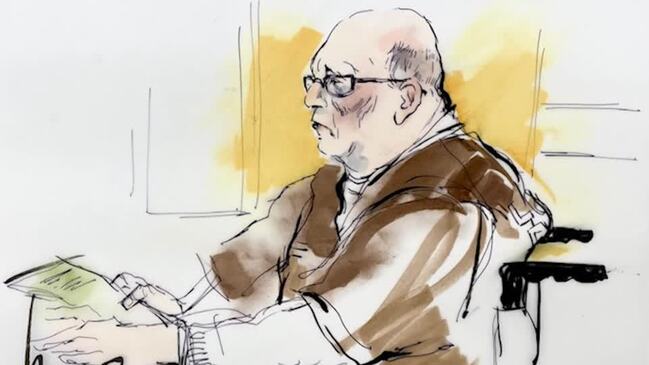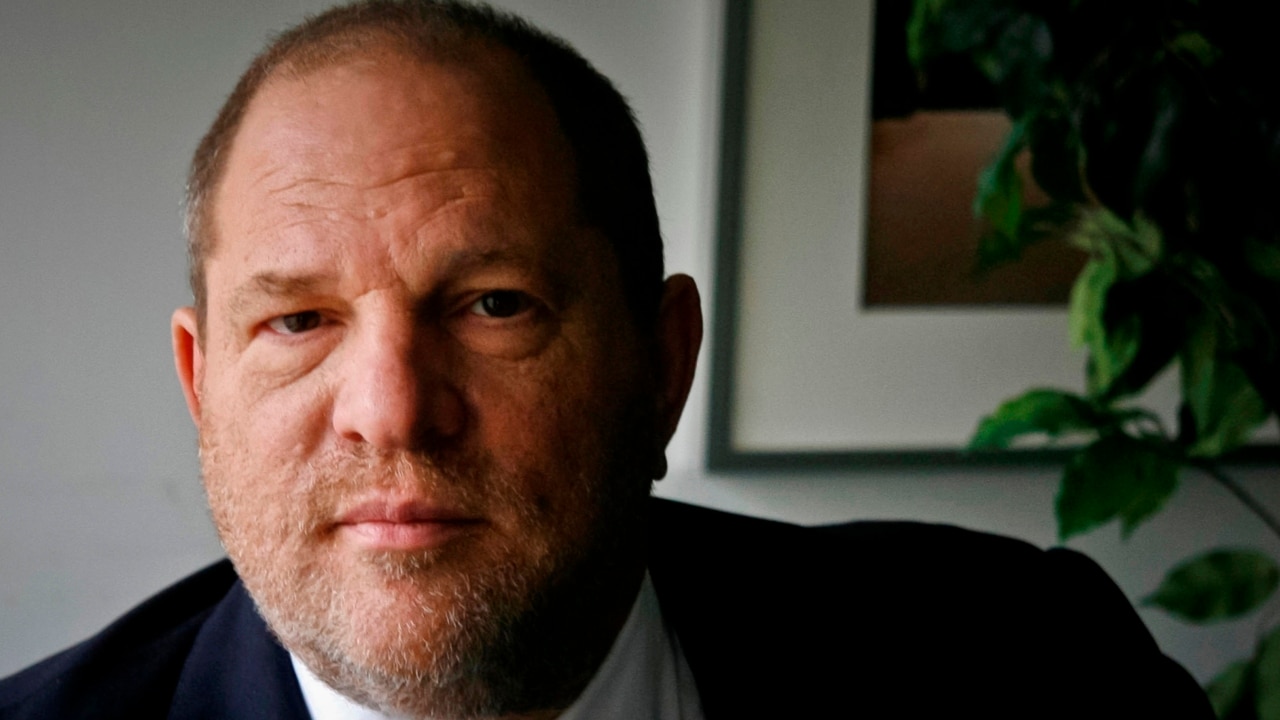How I exposed Harvey Weinstein after Silvio Berlusconi ruined my life
She was groped by Silvio Berlusconi at one of his infamous bunga-bunga parties, and Harvey Weinstein too. But Ambra Battilana Gutierrez got her revenge.

The MeToo movement arguably got under way on March 27, 2015, when Ambra Battilana Gutierrez, a young Italian model and former Miss Italy finalist, donned a hidden microphone to record her meeting with Harvey Weinstein.
No one had ever taken such a bold step to expose the movie mogul’s predatory behaviour, and it would be another two years before well-known American actresses would find the courage to help bring him down and change Hollywood for ever.
At Weinstein’s trial last year, the jury heard the recording Battilana made in the corridor of a New York hotel in which he admitted to grabbing her breast and promised: “I won’t do it again.” He then tried to bully her into entering his room.
Where did she find the nerve to record him? Back home in Italy.
She says she’d been groped five years earlier by Silvio Berlusconi, the former Italian prime minister, when she was taken at the age of 18 to one of his notorious sex parties with prostitutes.
When she spoke up after that experience, she was discredited and vilified in the press; besides serving three stints as prime minister between 1994 and 2011, Berlusconi had a vast media empire. “With Weinstein I felt history was repeating itself and I risked not being believed again, so I knew I needed proof to stop the bully winning,” says Battilana, in an interview with The Sunday Times after Berlusconi’s death in June from leukaemia at the age of 86. “I was so angry – I thought, if only I had worn a wire with Berlusconi … I said to myself, ‘This time I’m going to fix this.’”
What she cannot understand is how Weinstein was sentenced to 39 years in jail for his crimes while Berlusconi, who made a habit of crossing legal and ethical lines, and is remembered for having had sex with a 17-year-old as well as for the parties with prostitutes, got a state funeral and national day of mourning.
Like a latter-day Roman emperor, he was laid to rest in a giant underground mausoleum he’d built decades earlier in the grounds of his gargantuan villa in Arcore, near Milan. It was here that he staged the bunga-bunga orgies at which witnesses reported women stripping naked to have sex with each other, with other guests and with him: the bacchanalian soirées led to his conviction, and then acquittal, for having sex with a minor.
“The pussy must go around,” Berlusconi was overheard telling one assistant who supplied young women for parties.
Patrizia D’Addario, a prostitute hired for soirées in Rome, famously wrote after a tiring night with Berlusconi: “I thought I had seen a few things, but I had never seen 20 women for one man.”

The wild nights at Arcore were documented by Iris Berardi, one of 20 Brazilian dancers who reportedly performed for Berlusconi and were warned to “not be alarmed by obscene acts”.
According to prosecutors who investigated the parties, Berardi wrote in her diary that apart from having sex with Berlusconi, she was involved in lesbian encounters and “sex with two men at the same time”.
Another guest, Michelle Conceicao, reported young women competing to get into Berlusconi’s bedroom, knowing that time alone with the prime minister would bring a €5,000 pay day.
Berlusconi claimed he adopted the bunga-bunga term from his friend Muammar Gaddafi, the former Libyan leader who had signed a treaty of “friendship, partnership and co-operation” with Italy in 2008 and recruited scores of Italian women to visit him in Libya, where he was reported to have tried to convert them to Islam live on TV. Others say bunga-bunga was the punchline of a lewd joke Berlusconi told about the sexual punishment carried out by an imaginary African tribe against Europeans.

Battilana was brought to one of the parties in 2010 by Emilio Fede, a newsreader from the magnate’s media empire who helped to recruit attractive women for him. He had spotted the then 18-year-old schoolgirl after she won a beauty contest. Suggesting that she could be a candidate to become a TV weather girl, he invited her, with her friend and fellow beauty contestant Chiara Danese, to Arcore.
“When we arrived, Berlusconi started chatting to Chiara, and Fede said to him, ‘You eat in your plate, I’ll eat in mine,’ meaning he thought Chiara belonged to him, and that I was a gift for Berlusconi,” Battilana recalls.
Her dismay grew as she and her friend sat at a dining table with about a dozen other girls: they were passing around a statue of the god Priapus. One pretended to perform oral sex on it as Berlusconi told sexual jokes. “I’m thinking, ‘Is this guy running Italy?’ ” Battilana recalls.
Berlusconi made his move as he showed Battilana and Danese around the house after dinner. “We were on the stairs and he touched my butt. I turned and stared, he froze and understood and walked on,” she says.

Battilana links her ability to face down Berlusconi to her battles with her abusive father, who beat her mother and left the family for another woman when Battilana was 14. “My mother arrived from the Philippines when she was 19 but gave up her dream of becoming a dancer to become a housewife,” she says. “My father wanted control but was a coward, and as a teenager I would tell him to go to hell and help my mother stand up for herself.”
After fending off Berlusconi’s advances, Battilana was taken downstairs to a brick-walled basement featuring pole-dancing. Girls were dressed in police and nurses’ outfits. “I went into panic mode when one girl tried to undress me,” recalls Battilana, adding that guests started to compete by pushing their breasts in Berlusconi’s face. “He was like an Arab sheikh or a medieval king, but he seemed alone – the women didn’t care about him.” It was clear to her that all they wanted was money.
As Battilana and Danese made excuses and fled the party, Fede caught up with them. At first he said their careers as beauty queens were over but then changed his mind, telling them they had impressed Berlusconi. “The other girls are just prostitutes, now you will have great careers,” she says he told them.
Battilana admits she was once a fan of Berlusconi. She had grown up watching his TV channels, which put Italians on a diet of soccer, soap operas and sex. His programs would often feature showgirls in miniskirts and stilettos. Some would give on-air lap dances to chat show guests. Others simply stripped. “I remember thinking the showgirls were beautiful,” says Battilana. “I wanted to be like them.”
These programs helped to shape a whole generation’s attitudes towards women and are perhaps why the global MeToo movement has had less impact in Italy than in other European countries – a fact demonstrated recently when a judge cleared a school caretaker of groping a teenager because the assault lasted less than ten seconds. It prompted a torrent of online videos of Italians touching their body parts for up to ten seconds to demonstrate how long this can feel. “Men don’t have the right to touch women’s bodies, not even for a second, let alone five or ten,” wrote the influencer Francesco Cicconetti on TikTok.
Even though she’d managed to escapethe clutches of Berlusconi, Battilana’s life changed after the party. Somehow the guest list leaked to the press. She was hounded by photographers as she left school. The nightmare intensified when a newspaper owned by Berlusconi’s family claimed she had previously received expensive gifts from a rich “sugar daddy”.
“Chiara and I were the only ones who refused Berlusconi, and suddenly we were blackmailers and prostitutes,” she says.
Battilana headed for New York to salvage her modelling career. She went to a casting meeting, which was where she met Weinstein. He put a hand on her breast. When she complained to police, they asked if she would be willing to meet the film producer again, this time wearing a hidden microphone. She did not hesitate.

But even armed with her incriminating recording of Weinstein admitting to touching her breast and trying to lure her into a hotel room, prosecutors dropped the case, much to the amazement of the New York police.
By then the “sugar daddy” story was being revived by tabloids to smear Battilana again amid suspicions that Weinstein was feeding dirt to the press. Battilana says she had no choice but to sign a non-disclosure deal with Weinstein. But she kept the recording, and released it as the accusations against him by actresses began to multiply in 2017.
“I did the right thing, and I knew I would win in the end,” she says.
Back in Italy, fallout from the bunga-bunga parties had been catching up with Berlusconi. Fede, who had brought Battilana to the earlier party, also introduced him to Karima el-Mahroug, or “Ruby the heartstealer”, a 17-year-old Moroccan dancer. When word of this leaked out, it prompted an investigation and, eventually, the “Rubygate” trial that would make bunga-bunga a household name and cement Berlusconi’s reputation as a geriatric playboy.
Magistrates accused Berlusconi of paying a minor for sex and abusing his office to cover it up in 2013. But a seven-year prison sentence was overturned on appeal 12 months later after judges accepted his reassurances that he had thought Ruby was 18.
Among the other fallout from the scandal, escort Patrizia D’Addario says she contemplated suicide, and the TV showgirl and bunga-bunga regular Sara Tommasi drifted into drugs and porn film roles before being diagnosed as bipolar. “I would find myself on a set without knowing what I was doing there,” she has said.

Some women, though, were rewarded by the politician and media magnate. Nicole Minetti, a former TV dancer who helped to recruit women – and was herself reportedly willing to strip off at parties – was appointed a regional councillor by Berlusconi. He also appointed Mara Carfagna, a former topless model, as his minister for equal opportunities.
Berlusconi’s former wife, Veronica Lario, put her foot down, though, when his party sought to nominate four young starlets as candidates for the European parliamentary elections. She decried this as “entertainment for the emperor”.
Whatever his political legacy, Berlusconi is widely credited with having a negative impact on national views of women.
“His TV empire has shown undressed, objectified women to Italian households for decades,” says Silvia Moscatelli, a psychology professor at the University of Bologna. “Berlusconi has made a certain way of conceiving of women and of relationships acceptable.”

This could explain why Italy’s embrace of the MeToo movement has been muted compared with other European countries. Internet searches in Italy about the movement have been 50 per cent lower than in the UK. In a 2018 poll, 57 per cent of Italians said the movement had gone too far.
It felt like MeToo had never happened in June when Italy’s junior culture minister, Vittorio Sgarbi, boasted to a startled audience at an event in Rome that he had slept with 1500 women, adding that Berlusconi had told him his personal total was only 100.
Lorella Zanardo, an Italian filmmaker and president of the New Eyes For The Media association who succeeded in highlighting the parade of scantily clad showgirls on Berlusconi’s channels in the 2009 documentary Women’s Bodies, says Italian state TV has been no better. “Over the past 40 years we could have achieved great things by offering a true alternative,” she says.
Berlusconi’s media network has reduced on-screen nudity in recent years. Since his death, the channels are said to have gone slightly more upmarket. But Battilana says the damage has been done.
“Berlusconi got away with it because people were brainwashed by his TV,” she says. “They grew up with it, as I did. The difference is I left Italy, and all Italians who leave Italy come to see Berlusconi for who he really is.”
The model, who is now fighting in the US for better legal rights for women abused while modelling, says one good thing came out of her dinner with Berlusconi more than a decade ago. “I would like to be an example of someone who did not compromise,” she says.
Additional reporting: Anna Lombardi





To join the conversation, please log in. Don't have an account? Register
Join the conversation, you are commenting as Logout